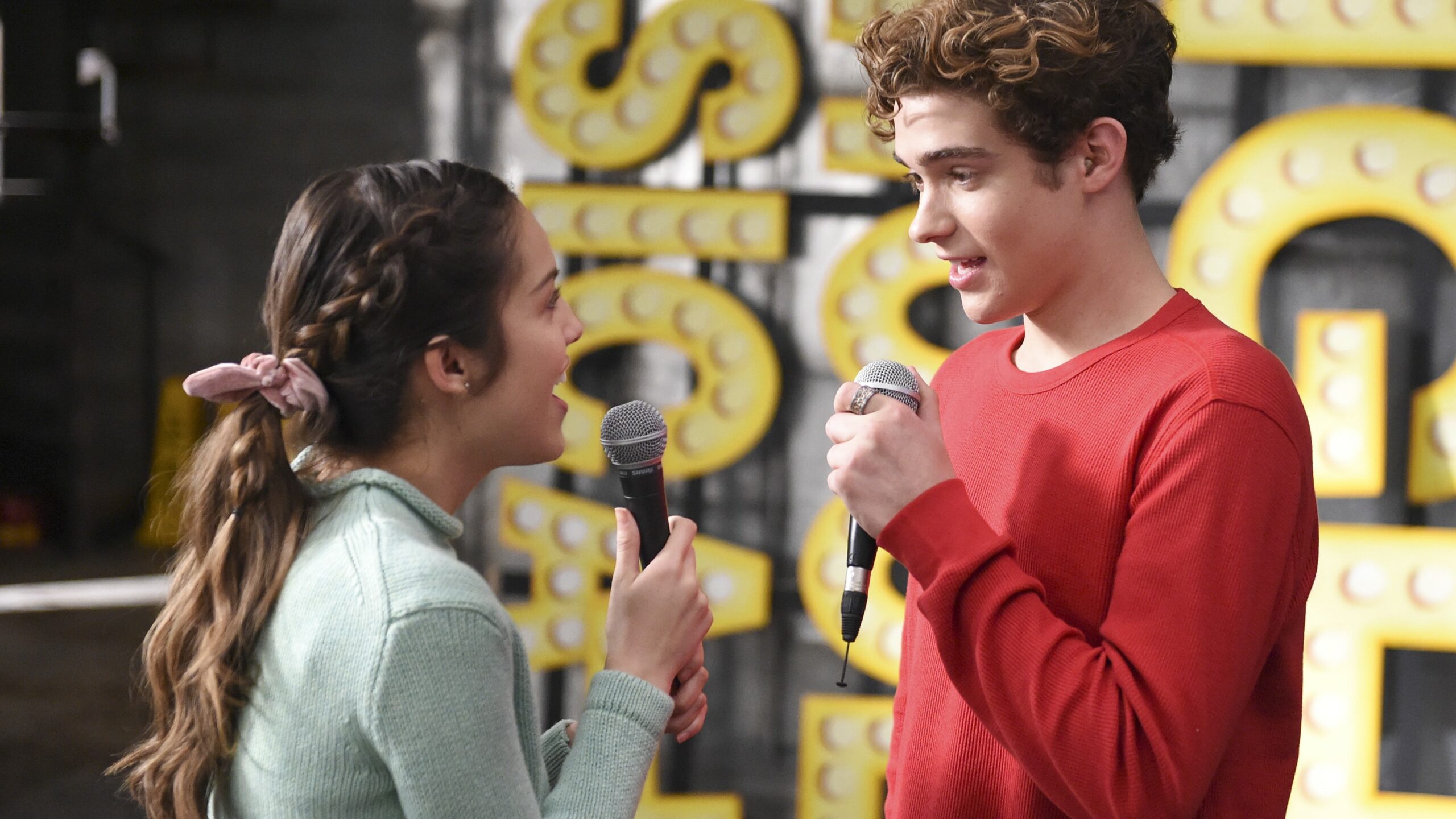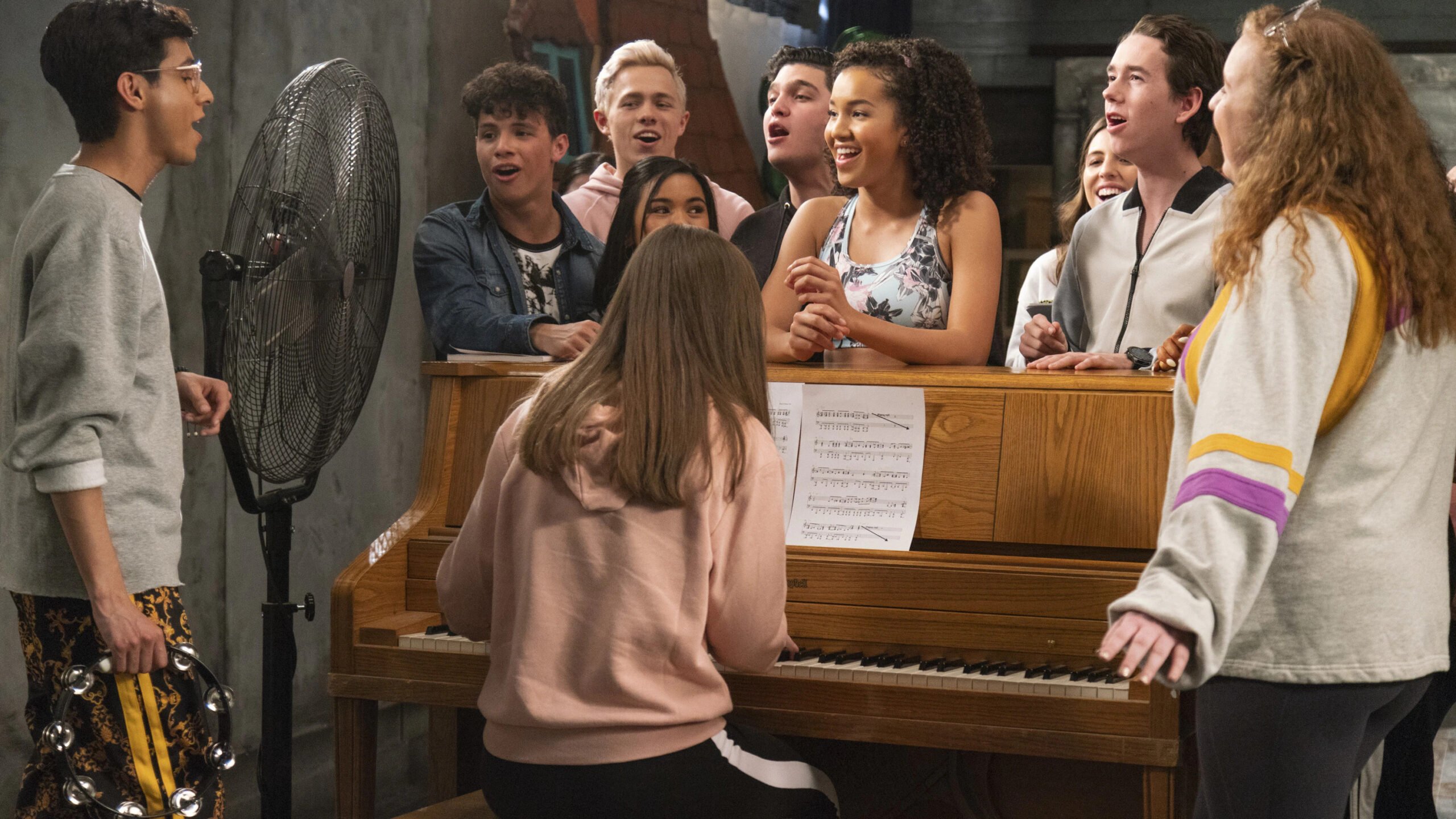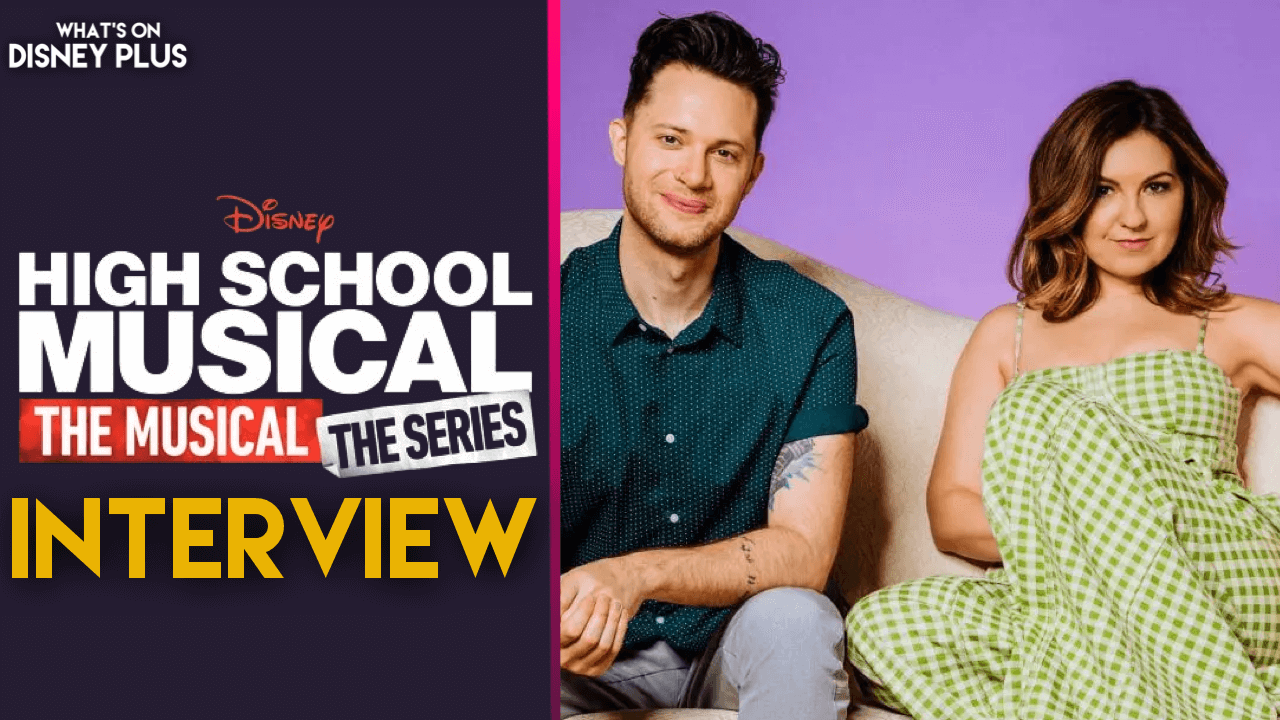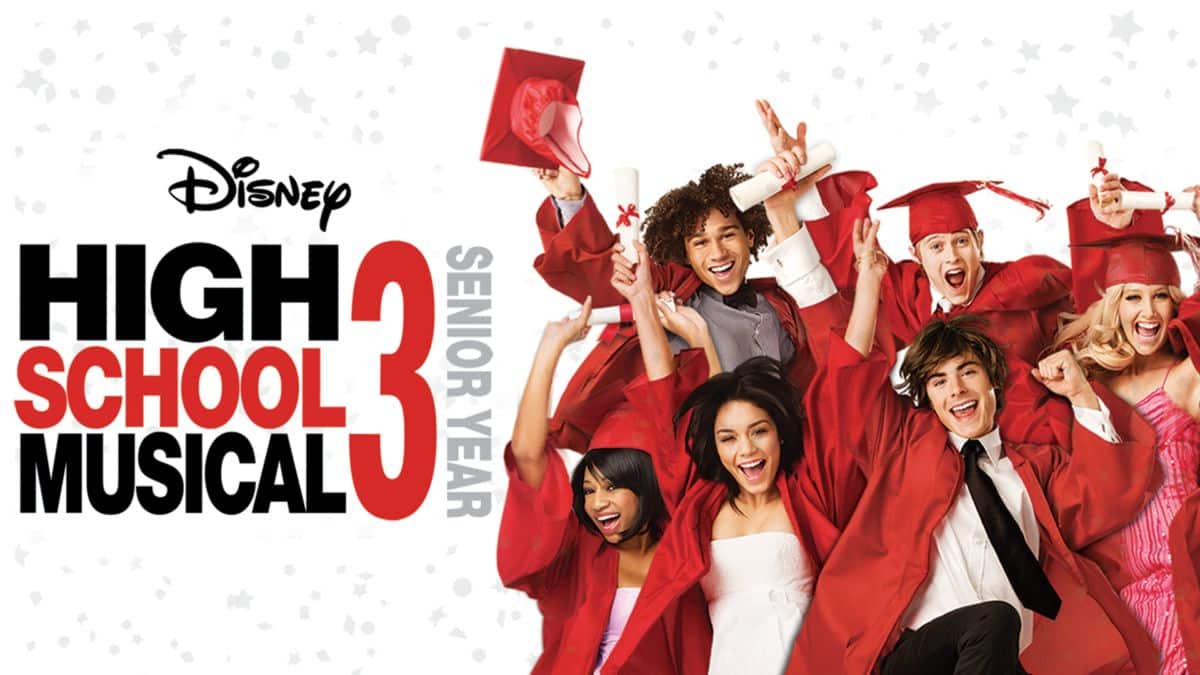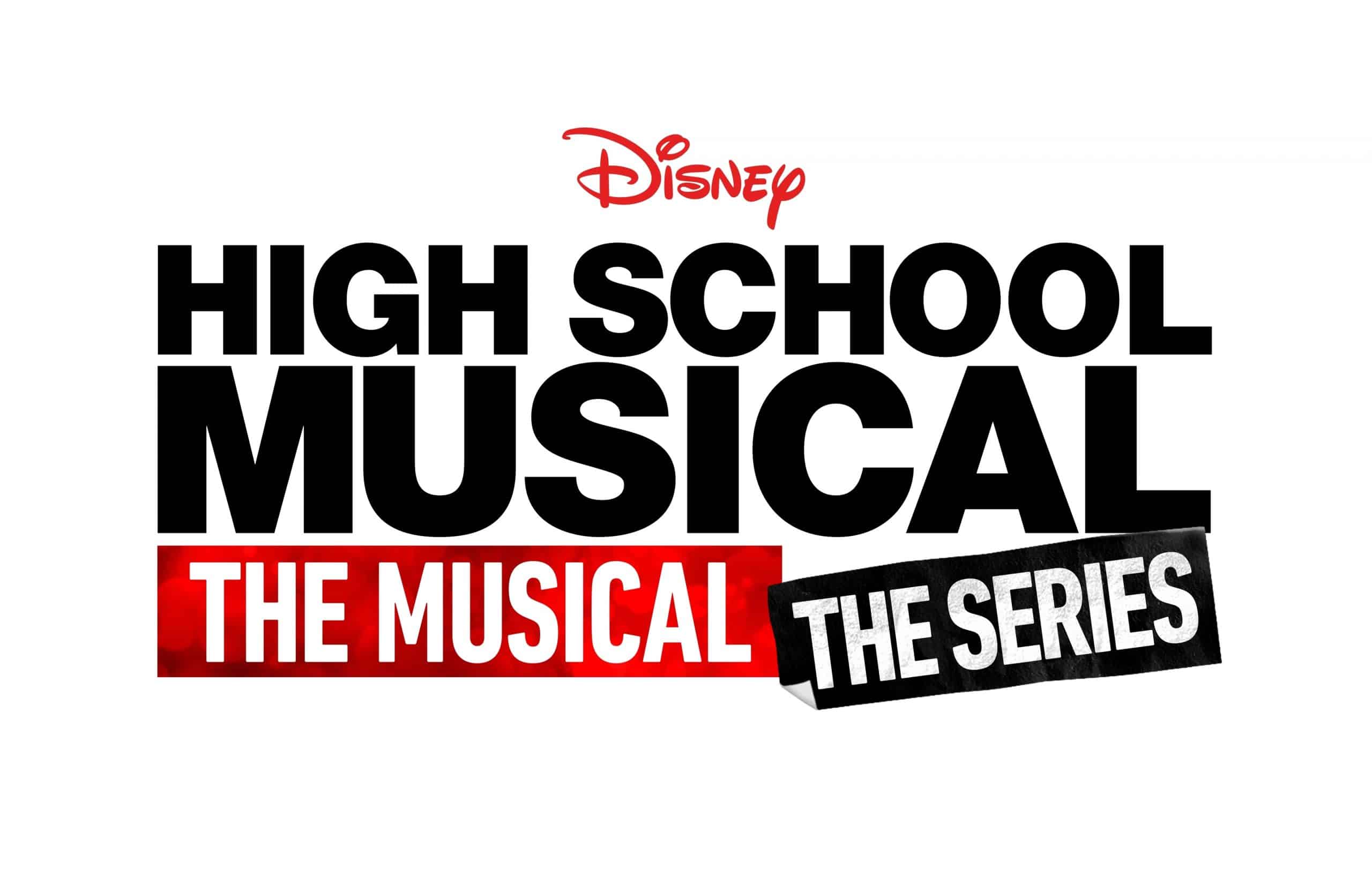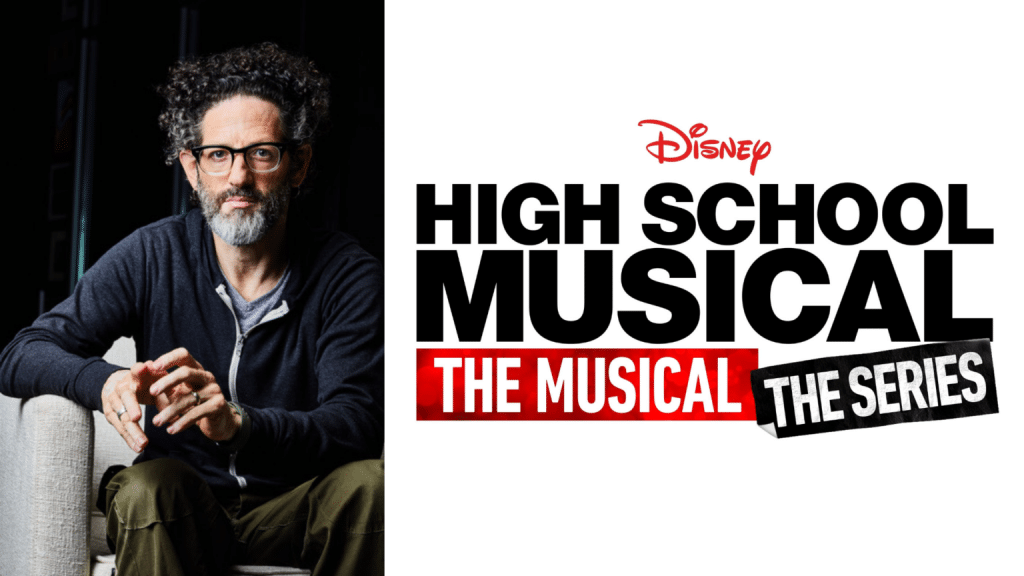
Interview with High School Musical: The Musical: The Series Composer Gabriel Mann
When you think of a TV composer, who comes to mind? Oftentimes, these composers write hours of music for a given TV season, and a show’s music can be integral to its success. Today, I had the opportunity to chat with Gabriel Mann, the award-winning composer of Modern Family and A Million Little Things, to talk about his latest work on Seasons 1 and 2 of High School Musical: The Musical: The Series. Keep reading for my EXCLUSIVE interview with Gabriel Mann!
Q: How did you get involved with High School Musical: The Musical: The Series, and what can viewers expect as the show enters Season 2?
I have written many songs over the years for various Disney projects, including the Descendants and Zombies series and a few other things. I had spoken with their head of music about being interested in composing for a series, and when this one came up, he thought I’d be a good fit due to the dual song/score combo and needing someone who could handle both when necessary. I really hit it off with the creator/showrunner Tim Federle, so that’s how that happened. As for what to expect from season 2, I’m obviously not at liberty to divulge any details, but suffice it to say that the show is just as powerful, if not more so this season, as it was last season! Amazing songs, incredible performances from the talented cast. I just think fans are going to lose it over season 2.
Q: I, along with many others, cannot wait for what Season 2 will bring! The High School Musical films have a dedicated following, and it is common to hear High School Musical songs played today. How did the music of the films drive your compositions for the series, and what techniques did you use to differentiate HSMTMTS from other scores?
In season one there were only a couple of clear references to the songs from the original series of movies due to a couple of clear story points we were trying to reinforce. As for the sound of the show though, it’s really its own thing, based loosely around the idea of a school orchestra pit band let by a pianist and a drummer, plus some marching band elements. It’s that marching band/pit band combo that I think drives the sound of the show, and allows for emotional moments and more active, exciting stuff from the score depending on what’s happening in the show.
Q: You have also composed for A Million Little Things, which is currently streaming on Hulu, and the show tackles some tough questions surrounding suicide, divorce, cancer, etc. How does composing for a more serious drama show like A Million Little Things differ from comedy shows like HSMTMTS?
There are some similarities, but emotionally A Million Little Things can get pretty complex. Those issues of suicide, divorce, disease, etc have to be treated very carefully so that the drama speaks for itself and is just supported by the music. I try not to lead our audience with what they’re supposed to feel, but rather let the drama play out and, when helpful, accentuate things musically. HSMTMTS has its share of dramatic moments, but we don’t deal with the same sorts of serious issues. That said, I try to feel what the characters are feeling in both cases, and to reflect that musically, whether its interpersonal drama or any of the more intense issues in AMLT. There’s also a fair amount of comedy in AMLT, so in many ways I’m using the same techniques across the board, just implementing them in different ways.
Q: Some of the best scores work behind-the-scenes to enhance the emotions and stakes of a film or show, and your work on HSMTMTS does that perfectly. It is hard to ignore the obvious – both A Million Little Things and HSMTMTS Season 2 were produced in the middle of strict pandemic protocols. In what ways has COVID-19 affected your day-to-day work as a composer?
The pandemic changed my schedule over the course of the past year. That’s been the main impact for me personally. For example, I had a longer than usual break over the summer, when Hollywood was pretty much shut down. I spent lots of time at home and didn’t come into the studio at all, cleaned windows, scanned photos, polished silver, etc. When shows began to come back it was in drips and drabs, and then suddenly more like a flood of work starting at the beginning of 2021 as the shows had figured out how to shoot in the midst of the pandemic. Then even as they were going full throttle, occasionally there would be work stoppages if someone got sick and they had to close down production temporarily. So that all has an effect on post-production, of which I’m a part. The other main thing is that there was no driving – no in-person spotting sessions or mixes, or meetings of any kind. All of that happened remotely, so in many ways it wound up being significantly more efficient. I could spend hours driving on a given day, something I haven’t done at all for this whole season.
Q: I know everyone is looking forward to a little bit of normalcy, and I am sure that Hollywood and the film industry will rise even stronger than before. While we have talked at length about HSMTMTS, I would be remiss if I did not mention your great composition work through all 11 seasons of Modern Family. What is it like to hear your theme song in front of every Modern Family episode, and what is your typical approach when you write music for “mockumentaries” like Modern Family and HSMTMTS?
Hearing my theme for Modern Family is like seeing an old friend. I’m still proud of it, and it’s just been a gift. I’m lucky to have been asked to participate in that project, and it led to many other amazing and interesting opportunities. It’s so rare in the world of music to have something out there that is recognized by so many people all over the world, so that is certainly not lost on me and I’m just grateful that it happened! That said, Modern Family and HSMTMTS are totally different in terms of the approach. Modern had very little music; there were interesting episodes where I’d have to make breakdancing music or a theme song to a closet commercial and things like that, but mainly it was about wrapping up the more emotional parts of the show in an ending montage. The score to HSMTMTS is much more active and involved scene to scene. We have some long emotional cues, and some rollicking, fun action cues that propel us through the more exciting parts of the show. It’s really a lot of fun, especially when things get going with the brass section!
Q: Yes – I always love the brass accents! As you are planning and writing new scores, what composers or musicians inspire your work?
I’m a huge fan of Thomas Newman, I think he’s just incredibly creative and a super talent. But there are so many others, I love Carlos Rafael Rivera’s work on Queen’s Gambit, Adam Taylor on Handmaid’s Tale, John Powell and his incredible work in animation, and of course Trent Reznor and Atticus Ross who have sort of upended the status quo. That said, I don’t really listen to much of this music; when I find myself with time for listening it’s Stravinsky, Beethoven, Debussy, and the records I grew up with – Billy Joel, The Cars, The Eagles, Fleetwood Mac, Stevie Wonder, a ton of stuff.
Q: It sounds like you surround yourself with a variety of musical influences and styles, and each of those genres is definitely evident in your scores! While I’m sure the pandemic has affected some of your plans, do you have any future projects in the works, and where can our readers find you?
I’m working on a couple of film projects now that I am not at liberty to discuss, unfortunately. I’m right at the end of season 3 of A Million Little Things though, and you can always find me at gabrielmann.com.

